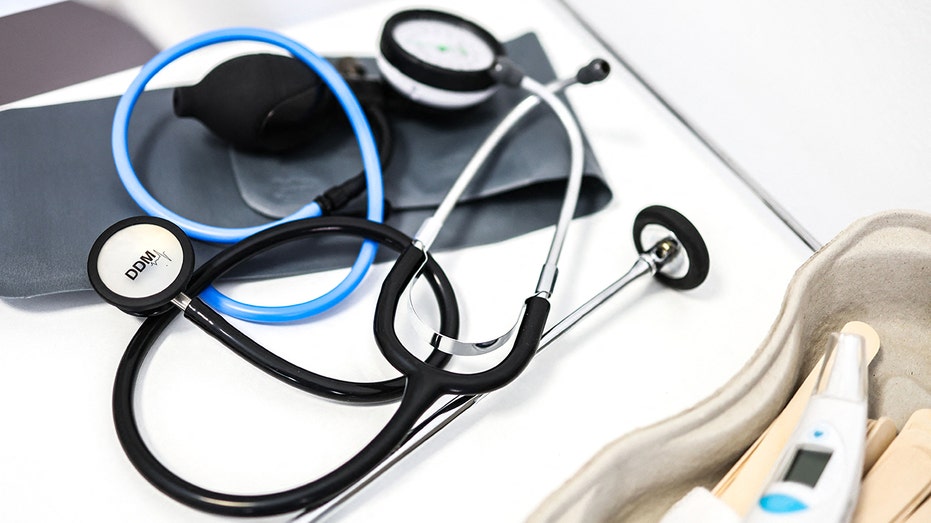Insurance policies and coverage: Which should you consider and which can you skip over?
Life, auto, homeowners and health are core types of insurance you should consider getting before others
Breakthrough cancer treatment is not something insurance will cover: Dr. Marc Siegel
Fox News medical contributor Dr. Marc Siegel joined ‘Mornings with Maria’ to discuss the Israeli cancer treatment that is reporting a 90% success rate.
There are so many types of insurance that it can be difficult to sort through which are vital to purchase and which may not be as urgent.
Depending on the type of insurance and kind of coverage you need, there are a number of policies to look into. It is important to understand all available options to make the best choice for you and your family.
Below is a line-up of popular types of insurance to consider if you do not already have them.

Travel insurance isn't as important as other insurance types but helpful if you are a frequent flier or travel out of the country often. (Nicolas Economou/NurPhoto via Getty Images / Getty Images)
THESE TWO FACTORS COULD BE DRIVING YOUR CAR INSURANCE COSTS UP
- Life insurance
- Auto insurance
- Homeowners/renters insurance
- Health insurance
1. Life insurance
Life insurance is one of the most important insurance types, yet many Americans have never purchased it. In fact, only 54% of Americans have life insurance, according to the Insurance Information Institute.
Life insurance is used to assist your family with expenses in the case of your death. Most employers offer group-term life insurance as a benefit of working for them. Life insurance through an employer is often easier to obtain as they do not require a health check up to receive insurance. Additionally, life insurance through work is cheaper.
A caveat to employer-sponsored life insurance is that if you leave the company or get fired, you likely no longer have insurance. This is the case unless you have the option to port, or buy, your insurance.
2. Auto insurance
If you have a vehicle that you are taking out on the road, that vehicle has to be insured in most states. New Hampshire is the only state in the U.S. that does not require drivers to have a basic plan.
Auto insurance is priced differently through each company. Before buying auto insurance, do your homework and consider the cost for each company.

Auto insurance is required in most U.S. states. (Jonas Walzberg/picture alliance via Getty Images / Getty Images)
COMPARING CAR INSURANCE QUOTES CAN SAVE YOU HUNDREDS OF DOLLARS PER YEAR-HERE'S WHY
It is illegal to drive without auto insurance in most states, and purchasing car insurance will save you big in case of an accident. Often, whether an accident is your fault or not, the cost to repair a car or even purchase another one is pricey. Purchasing auto insurance will assist you later in paying for the expenses associated with an accident.
Some types of insurance coverages associated with cars include liability, personal injury protection, medical payments, comprehensive, collision, uninsured and underinsured motorist.
The cost of an individual's auto insurance depends on several factors, including the location you reside in, your driving history, your driving habits, demographics like your age, deductibles and limits.
Discounts for auto insurance are available if you bundle insurances types through a company. For example, bundling your car, home and business insurance through the same agency can lessen the cost of all three insurances by having multiple policies.
Other savings for auto insurance include maintaining a clean driving record, being a good student, loyalty discounts, discounts from an automatic seatbelt, pay-in-full discounts, going paperless and so many more.
3. Homeowners/renters insurance
Homeowners insurance is important in the case that something unexpected happens to your home, and you are in need of repairs or replacements. Homeowners insurance may be used is in the case of a fire, an accident or a break in. Avoid breaking the bank in any of these situations and obtain homeowners insurance.
With homeowners insurance, policies include dwelling coverage, other structures coverage, personal property coverage, loss of use coverage, liability coverage and medical payments' coverage.
If you are renting an apartment, you can purchase renters insurance to protect your belongings in a disaster or incident of theft. Renters insurance also helps pay for expenses that may arise if your apartment becomes unlivable like in a leak that floods your apartment or a natural disaster like a hurricane or tornado.
Some of the standard coverages for renters insurance are personal property coverage, personal liability coverage and loss of use coverage. When disaster strikes, you are going to be grateful that you have renters insurance.

Having homeowners insurance can save you a lot of money if something were to happen to your home. (Jim Lane/Education Images/Universal Images Group via Getty Images / Getty Images)
FLOOD INSURANCE: WHY YOU SHOULD CONSIDER FLOOD INSURANCE DURING SPRING
4. Health insurance
Medical bills are known to pile high, but health insurance can assist with unexpected costs that accrue in a medical emergency or a planned event like a surgery or birth.
Medical debt can often be a major expense for Americans. In the U.S. as of 2023, medical debt is up to $195 billion collectively.
According to Lending Tree, 23% of Americans are currently dealing with medical debt, while 45% have been bogged down by it at some point in their lives.
Health insurance can also be used for more minor medical expenses like appointments and copay, purchasing medications or medical equipment like crutches or bandages and more. All of these items add up over time when paying out-of-pocket.

Health insurance can help against expensive medical bills. (CHARLY TRIBALLEAU/AFP via Getty Images / Getty Images)
Other types of insurance to consider:
Travel insurance protects against any financial losses that happen during travel. If your trip is canceled due to a medical emergency, like a stroke or heart attack, you can recover some or all of the cost.
Other reasons to purchase travel insurance are for refunds in case of cancelations or lost luggage. While you should purchase travel insurance as soon as your book your trip, you can add it after you have booked your flight. In order to maximize your coverage, you should purchase it 14–15 days before you travel.
You cannot purchase travel insurance after an incident has happened.
2. Long-term disability insurance
Long-term disability insurance protects you from losing income in case of an injury or illness that prevents you from being able to work for an extended period of time. This type of insurance is also beneficial for expecting mothers who do not receive enough maternity leave or become ill following birth.
3. Long-term care insurance
Long-term care insurance is mostly considered by those of elder age as it financially assists individuals in need of nursing home care. If you are no longer able to care for yourself, long-term care insurance might be necessary for you.
IS LONG-TERM CARE INSURANCE A GOOD BET?
4. Identity theft protection
Identify theft protection is for those who fall victim to identify theft. When an incident of identity theft happens, individuals with this type of insurance will be assisted financially with the costs associated with recovering their identity.
As more people use technology and tech becomes more advanced, individuals are at greater risk of identity theft. In addition to identity theft protection, you should regularly change your passwords and avoid maintaining the same login information for accounts with personal information.
GET FOX BUSINESS ON THE GO BY CLICKING HERE
5. Umbrella insurance
Umbrella insurance is an extra layer of insurance and protection that goes beyond the available policy. If you have acquired major assets, you might want to consider umbrella insurance. Beware that the more assets you have, the more costly the coverage will be.




















